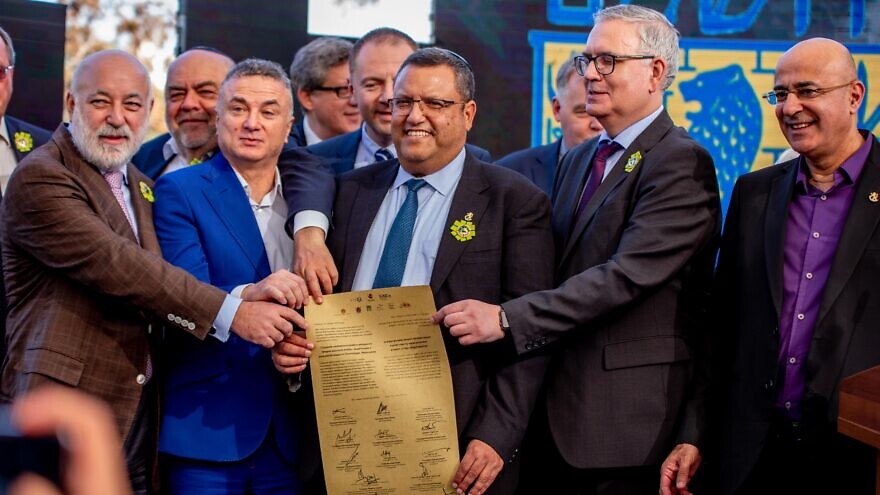The cornerstone of a monument commemorating the World War II Siege of Leningrad was laid in a ceremony in Jerusalem on Tuesday.
The Memorial Candle Monument is dedicated to the estimated 600,000 to 1.5 million people, among whom were tens of thousands of Jews, who died in the course of the 900-day siege, which lasted from Sept. 8, 1941 to Jan. 27, 1944.
The monument was funded by the Euro-Asian Jewish Congress (EAJC) and businessman and philanthropist Viktor Vekselberg, and sponsored by the Jewish National Fund, Keren Hayesod and the Russian Jewish Congress (RJC).
The ceremony was attended by Jerusalem Mayor Moshe Leon; Jerusalem Affairs Minister Ze’ev Elkin; St. Petersburg Vice Governor Vladimir Knyaginin; Russian Ambassador to Israel Anatoly Viktorov; EAJC President Dr. Michael Mirilashvili; Vekselberg; RJC president Yuri Kanner; project mastermind Leonid Litinetsky; and chair of the Union of World War II Veterans Abraham Grinzaid.
“The Memorial Candle monument in Jerusalem not only appeals to our shared memory,” he said, “but serves as a reminder that the world remains a precarious place. It is up to us to uphold the truth and preserve the memory of the terrible war so that the tragedy of our peoples never repeats.”
Businessman Vekselberg said that “time erases many things, especially painful memories of past tragedies. This is simply our coping mechanism.”
However, he added, “we cannot let ourselves forget about such horrific events … as the Siege of Leningrad. Our shared task is to remind present and future generations about the heroism of the people of Leningrad, and about the trials and tribulations they had to endure during those endless 900 days and nights.”
The project was introduced by Russian and Israeli leaders in January 2017 at an event in Moscow dedicated to International Holocaust Remembrance Day, and was undertaken with the support of the authorities in St. Petersburg and Jerusalem.
The opening of the steel stele bearing the symbols of Israel and St. Petersburg is slated to take place in January 2020 as part of the celebration of Leningrad Liberation Day and Holocaust Remembrance Day, both of which fall on Jan. 27.


























